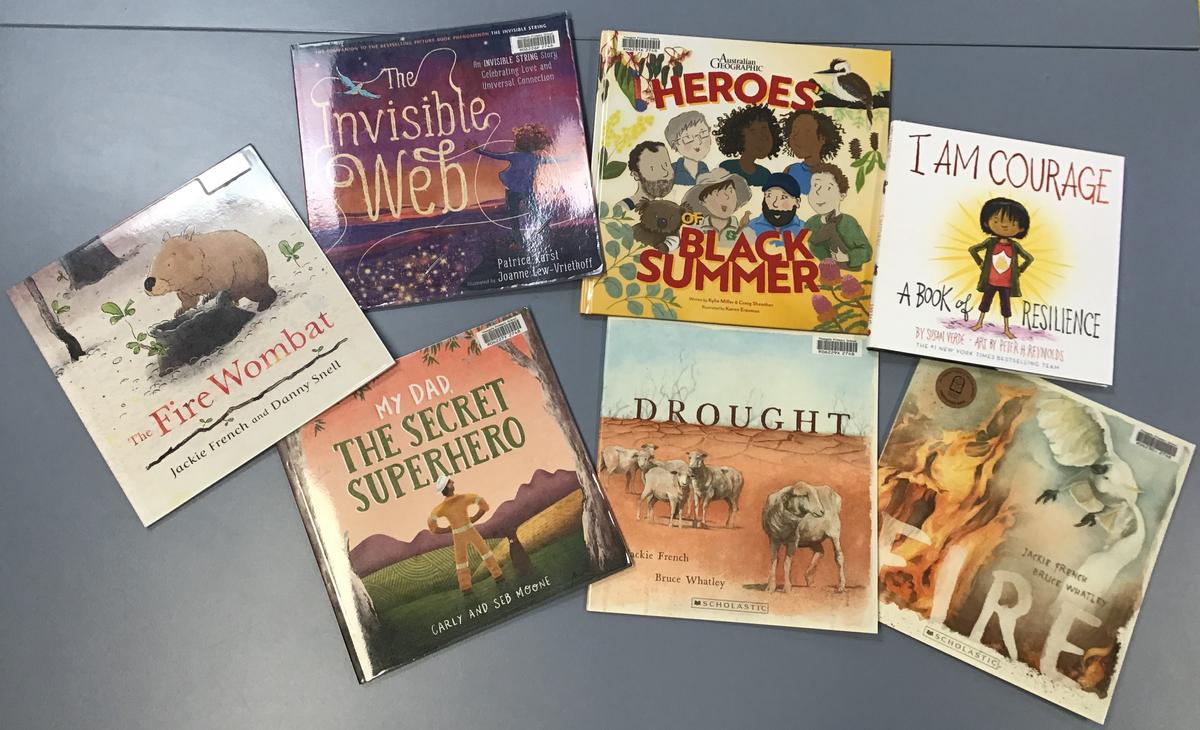Library
HealthWise Donation
Premiers Reading Challange

Library
HealthWise Donation
Premiers Reading Challange
HealthWISE has kindly donated seven new books to our library.


The books are part of the Recover Adapt Connect - Supporting disaster resilience following bushfire - An initiative of HealthWISE funded by the Australian Government


Part 1. What is trauma?
Trauma is an adverse event that upsets or distresses a person or child and can affect a person’s ability to cope or function normally. Everyone’s reaction to a traumatic experience is different. Some people experience problems directly after the trauma and some experience much later.
What are some examples of a traumatic experiences?
Acts of violence, natural disasters like bushfires and floods, loss of a loved one, motor vehicle accident, these are just a few.
When we experience a traumatic event, our bodies trigger a ‘fight or flight’ response in order to protect us from the threat. We either fight the threat or run from the threat.
- Increased heart rate and breathing
- Blood flow increases to the head, arms and legs
- Muscles tense ready for action.
As a result of this strong reaction, the chemicals in our brains go haywire and this impacts our brain’s ability to correctly file away the memory of this traumatic event. What this means it that when we recall the traumatic event our bodies respond in the same way as it did at the time - racing heart, shortness of breath, anger, fear and anxiety.
In children if a traumatic event is not addressed it can lead to adverse outcomes as an adult. A traumatic event can also impact a child’s learning ability, their ability to concentrate, to make friends and keep friends. They may lash out verbally or physically towards other people as they see them as threats. That’s not to say all children who are anxious have experienced trauma. They may be experiencing a generalised anxiety disorder.
Psychosocial support can be an important factor for a child impacted by a traumatic event it can help to speed up the process of recovery and to prevent problems that children may encounter in the future. Psychosocial support and activities can help children (and adults) to build resilience and their ability to cope with difficult situations.
So what is this term “Psychosocial support”?
“Psycho” refers to inner core of a person, it is their thoughts, emotions and feelings. “Social” refers to the external factors of a person’s life like environment and relationships. So therefore Psychosocial looks at the combined influence of psychological and social environments of an individual and the impact these play on the individual’s physical and mental wellness as well as the ability to function.
Psychosocial support and activities for children can help strengthen protective factors, including their ability to identify dangerous and risky situations. It can also help build resilience and their ability to cope with difficult situations.
Also always remember that all interactions with children have the potential to be psychosocially supportive, for example, showing respect towards others and the children you’re working with, showing a positive attitude towards them and valuing their ideas and presence are all ways of helping to improve children’s self-confidence and self-esteem, and hence their well-being.
Prepared by the HealthWISE mental health team
Part 2 - Ways to assist in next newsletter


NSW 2023 Premier's Reading Challenge
Please remember that books read at home can be added to your child's/children's reading tally. Let school know what you have read and Mrs Hunt will add them to the count.

